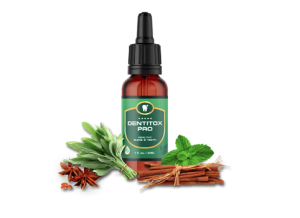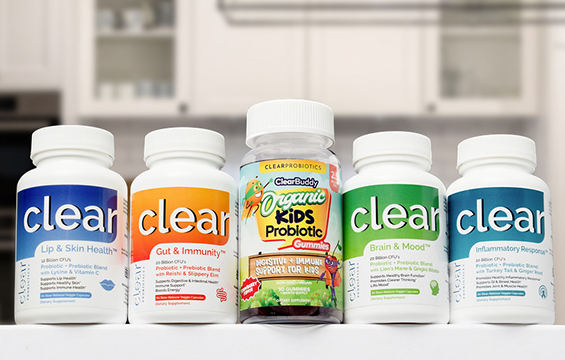Table of Contents
ToggleHaving healthy gums is essential for maintaining optimal oral health.
If you’re looking to boost your gum health, incorporating supplements into your daily routine can be beneficial.
Certain supplements have been shown to improve gum health and treat common gum problems like periodontal disease.
Supplements for healthy gums can provide the necessary nutrients to nourish your gum tissue and support overall oral hygiene.
They can help reduce inflammation, protect against gum damage, and promote a healthy oral microbiome.
In this article, we will explore the key supplements that can contribute to healthy gums, including vitamin C, omega-3s, probiotics, melatonin, and other essential vitamins and minerals.
But before we dive in, it’s important to note that consulting with a dental professional is always recommended before starting any supplement regimen, as they can provide personalized advice based on your individual gum health needs.
Key Takeaways:
- Supplements can improve gum health and treat periodontal disease.
- Key supplements for healthy gums include vitamin C, omega-3s, probiotics, melatonin, vitamin D, B complex vitamins, zinc, and CoQ10.
- Consulting with a dental professional is advisable before starting any supplement regimen.
- Incorporating supplements into your daily routine can support overall oral hygiene.
- Supplements can help reduce inflammation, protect against gum damage, and promote a healthy oral microbiome.
The Importance of Vitamin C for Gum Health
Vitamin C plays a crucial role in maintaining healthy gums, and a deficiency in this essential nutrient can contribute to gum inflammation and an increased risk of periodontal disease.
Incorporating a vitamin C supplement into your daily routine can help improve gum health and reduce the likelihood of gum problems.
One of the main benefits of vitamin C is its ability to support collagen production. Collagen is an important protein that helps to form and repair connective tissues, including those in the gums.
By promoting collagen synthesis, vitamin C helps to strengthen the gums, prevent bleeding, and improve overall oral health.

In addition to its role in collagen production, vitamin C also acts as a powerful antioxidant.
It helps to neutralize harmful free radicals that can damage gum tissues and lead to inflammation. By reducing oxidative stress, vitamin C can lower the risk of gum disease and protect against gum damage.
The Benefits of Vitamin C for Gum Health:
- Strengthens the gums and prevents bleeding
- Supports collagen production for healthy connective tissues
- Acts as an antioxidant to reduce inflammation and protect against gum disease
- Improves overall oral health and reduces the risk of periodontal disease
It’s important to note that while vitamin C supplements can provide significant benefits for gum health, they should not replace a balanced diet.
Include vitamin C-rich foods like citrus fruits, berries, and leafy greens in your meals to enhance the effects of your supplement.
Consulting with a dental professional is essential before starting any supplement regimen to ensure it aligns with your specific gum health needs.
They can provide personalized recommendations and guidance to help you achieve optimal gum health.
Omega-3s: Anti-inflammatory Support for Gum Health
Omega-3 fatty acids are not only beneficial for heart health; they also play a vital role in supporting gum health by reducing inflammation and fighting bacteria that contribute to periodontal disease.
Including omega-3s in your diet or taking fish oil supplements can provide anti-inflammatory support for your gums.
A study published in the Journal of Clinical Periodontology found that omega-3 supplements helped reduce inflammation and bleeding in patients with chronic periodontal disease.
The anti-inflammatory properties of omega-3s can help alleviate gum inflammation and promote healing.
Omega-3s have been shown to inhibit the growth of certain bacteria associated with gum disease, helping to maintain a healthier oral microbiome.
Research has shown that omega-3 fatty acids may help treat periodontal disease and improve gum health. By reducing inflammation and fighting harmful bacteria, omega-3s can support overall gum health and reduce the risk of gum disease.
To ensure you’re getting enough omega-3s, consider incorporating fatty fish such as salmon, sardines, or mackerel into your diet.
If you’re not a fan of seafood, fish oil supplements can provide a concentrated dose of omega-3s.

- Omega-3 fatty acids are beneficial for gum health, reducing inflammation and fighting bacteria that contribute to periodontal disease.
- Research has shown that omega-3 supplements can help reduce inflammation and bleeding in patients with chronic periodontal disease.
- Incorporate fatty fish into your diet or consider taking fish oil supplements to ensure an adequate intake of omega-3s.
- Consult with a healthcare professional before starting any new supplement regimen.
| Omega-3s | Support for Gum Health |
|---|---|
| Reduced inflammation | Helps alleviate gum inflammation and promote healing |
| Fights bacteria | Inhibits growth of harmful bacteria associated with gum disease |
| Source | Fatty fish like salmon, sardines, and mackerel or fish oil supplements |

Probiotics: Promoting a Healthy Oral Microbiome
Maintaining a healthy balance of bacteria in your mouth is crucial for gum health, and incorporating probiotics into your oral care routine can help achieve this balance.
Probiotics are live bacteria and yeasts that, when consumed in adequate amounts, provide numerous health benefits.
When it comes to gum health, certain strains of probiotics have been found to reduce harmful bacteria and inflammation.
One effective way to introduce probiotics into your oral care routine is through probiotic lozenges or capsules.
These oral probiotics contain specific strains that target the oral microbiome, helping to restore balance and support gum health.
The use of probiotic lozenges has been shown to reduce the presence of harmful bacteria associated with gum disease and improve overall oral health.
Incorporating probiotics into your oral care routine is especially beneficial for individuals with gum disease or those at risk of developing it.
By reducing harmful bacteria and inflammation, probiotics can help prevent and treat periodontal disease.
In addition to maintaining good oral hygiene practices, including regular brushing and flossing, adding probiotics to your daily routine can provide an extra layer of protection for your gums.

| Benefits of Probiotics for Gum Health |
|---|
| Reduces harmful bacteria associated with gum disease |
| Helps alleviate gum inflammation |
| Aids in restoring a healthy balance of oral microbiome |
| Supports overall oral health |
Remember, while probiotics can be beneficial for gum health, it is important to consult with a dental professional before incorporating any new supplements into your routine.
They can provide guidance on choosing the right probiotic product and determine the appropriate dosage for your specific needs.
By partnering with a dental professional and adopting a holistic approach to oral care, you can give your gums the support they need for optimal health.
Melatonin: Protecting Against Gum Damage
Melatonin, commonly known as the sleep hormone, has shown promise in protecting against gum damage and promoting overall gum health.
This powerful antioxidant has been found to have anti-inflammatory properties, which can help reduce inflammation in the gums and alleviate gum pain.
Melatonin’s antioxidant effects can help protect against oxidative stress, which can contribute to gum disease.
Research has indicated that melatonin may also have antimicrobial properties, helping to reduce the growth of harmful bacteria in the mouth.
By inhibiting the growth of these bacteria, melatonin can support a healthy oral microbiome and contribute to improved gum health.
While more studies are needed to fully understand the impact of melatonin on gum health, initial findings are promising.
Taking melatonin supplements may offer a natural and effective way to protect against gum damage and reduce inflammation in the gums.

| Melatonin Benefits for Gum Health | Sources of Melatonin |
|---|---|
|
|
Consult with a Dental Professional
Before incorporating melatonin supplements into your oral health routine, it is important to consult with a dental professional.
They can assess your specific gum health needs and determine if melatonin supplementation is a suitable option for you.
A dental professional can also provide guidance on dosage and potential interactions with other medications or supplements you may be taking.
Remember, maintaining healthy gums goes beyond just taking supplements. Regular brushing, flossing, and dental check-ups are essential for optimal gum health.
By adopting a holistic approach to gum care and working with a dental professional, you can support your gum health and improve your overall oral hygiene.

Additional Vitamins and Minerals for Gum Health
In addition to vitamin C, omega-3s, probiotics, and melatonin, several other vitamins and minerals can contribute to healthy gums and overall oral health.
These nutrients play essential roles in maintaining the integrity of gum tissues, supporting the immune system, and promoting healing.
Vitamin D
Vitamin D is crucial for gum health as it helps the body absorb calcium, which is essential for strong teeth and bones.
Research has shown that individuals with low levels of vitamin D may have an increased risk of periodontal disease.
Taking a vitamin D supplement or getting enough sunlight exposure can help ensure adequate levels of this important nutrient.
B Complex Vitamins
The B complex vitamins, including thiamine (B1), riboflavin (B2), niacin (B3), pantothenic acid (B5), pyridoxine (B6), biotin (B7), folate (B9), and cobalamin (B12), are essential for maintaining oral health.
They contribute to the overall health of gum tissues, promote collagen synthesis, and support a healthy immune system.
Including foods rich in B vitamins, such as whole grains, legumes, eggs, and leafy green vegetables, in your diet can help meet your daily requirements. However, if your diet is lacking, a B complex vitamin supplement may be beneficial.
Zinc
Zinc is a mineral that plays a vital role in promoting wound healing and supporting the immune system.
It has been found to have anti-inflammatory and antibacterial properties, which can help reduce gum inflammation and prevent the growth of harmful oral bacteria.
Zinc can be found in foods like red meat, poultry, seafood, nuts, and seeds.
If you have a zinc deficiency or have difficulty meeting your daily requirements through diet alone, a zinc supplement may be recommended.
Coenzyme Q10
Coenzyme Q10 (CoQ10) is a powerful antioxidant that can help protect gum tissues from damage caused by free radicals.
It also plays a role in energy production within cells, which is essential for maintaining healthy gum tissues.
Research has shown that CoQ10 supplements may help reduce gum inflammation and improve periodontal health.
Including CoQ10-rich foods like organic meats, fish, and whole grains in your diet can also be beneficial.
| Vitamin | Role | Food Sources |
|---|---|---|
| Vitamin D | Antioxidant protects against gum damage, supports energy production | Fatty fish, fortified dairy products, sunlight exposure |
| B Complex Vitamins | Maintains oral health, promotes collagen synthesis, supports the immune system | Whole grains, legumes, eggs, leafy green vegetables |
| Zinc | Anti-inflammatory, antibacterial, supports wound healing | Red meat, poultry, seafood, nuts, seeds |
| Coenzyme Q10 | Antioxidant, protects against gum damage, supports energy production | Organ meats, fish, whole grains |

Ensuring Safe Supplement Use with Dentists
It is essential to consult with a dental professional before incorporating them into your oral care routine.
A dental professional will be able to assess your specific gum health needs and provide personalized recommendations for supplements that are suitable for you.
During a consultation, the dental professional will consider factors such as your overall oral health, medical history, and any existing gum issues.
They will also take into account your diet and lifestyle to determine which supplements may be beneficial for optimizing gum health.
The dental professional may recommend specific supplements based on your individual needs, such as vitamin C for reducing the risk of periodontal disease or probiotics for balancing the oral microbiome.
They can guide you on the appropriate dosage and duration of supplement use to ensure maximum effectiveness.

Herbal Supplements For Gum Health
These natural alternatives can provide additional support in maintaining optimal gum health and may complement a balanced diet and good oral hygiene practices.
Natural remedies for gum health include herbal supplements that contain ingredients known for their therapeutic properties.
- Sage: Historically used for its antibacterial properties, it can help reduce gum inflammation and promote a healthier oral environment.
- Peppermint: This herb not only freshens breath but also possesses antimicrobial properties that can assist in combating harmful bacteria in the mouth.
- Chamomile: Known for its calming and anti-inflammatory effects, chamomile can soothe irritated gums and reduce inflammation.
- Aloe Vera: This plant gel can help in soothing inflamed gums and has antibacterial properties.
- Green Tea: Rich in antioxidants, it has anti-inflammatory properties and can help in reducing gum inflammation.
- Turmeric: Contains curcumin, which has powerful anti-inflammatory and antioxidant properties. It can help reduce symptoms of gum inflammation.

Healthy Gums Roundup
- Herbal supplements can be a natural remedy for promoting gum health.
- Choose reputable brands and consult with healthcare professionals when considering herbal supplements.
- A balanced diet and good oral hygiene practices are essential for maintaining healthy gums.
- Avoid smoking and limit the consumption of sugary foods and drinks to support gum health.
- Supplements and natural remedies can be complementary to a holistic approach to oral care.
What to Remember About Healthy Gums
Achieving and maintaining healthy gums is crucial for overall oral health, and incorporating oral health supplements and natural remedies can significantly contribute to gum care.
Taking certain supplements can improve gum health and treat periodontal disease. Here are some key supplements for healthy gums:
- Vitamin C: A deficiency in vitamin C can lead to inflamed, bleeding, and painful gums. Taking a vitamin C supplement can reduce the risk of periodontal disease and improve gum health.
- Omega-3s: Omega-3 fatty acids have anti-inflammatory and antibacterial effects that can help treat periodontal disease. Fish oil supplements are a concentrated source of omega-3s.
- Probiotics: Certain strains of probiotics can benefit gum health by reducing harmful bacteria and inflammation. Probiotic lozenges or capsules can be effective for supporting overall oral health.
- Melatonin: Melatonin has anti-inflammatory and antioxidant properties that can protect against gum damage. Taking melatonin supplements may improve gum health and reduce inflammation.
Other vitamins and minerals that can support gum health include vitamin D, B complex vitamins, zinc, and Coenzyme Q10 (CoQ10).
It is advisable to consult with a dental professional before starting any supplement regimen.
They can provide personalized guidance based on your specific gum health needs and ensure that the supplements you choose are safe and effective for you.

| Supplement | Benefits |
|---|---|
| Vitamin C | Reduces the risk of periodontal disease and improves gum health. |
| Omega-3s | Helps treat periodontal disease with anti-inflammatory and antibacterial effects. |
| Probiotics | Reduces harmful bacteria and inflammation for overall oral health. |
| Melatonin | Protects against gum damage with anti-inflammatory and antioxidant properties. |
| Vitamin D | Supports gum health and overall oral health. |
| B complex vitamins | Helps maintain healthy gums and oral tissues. |
| Zinc | Supports gum healing and strengthens the immune system. |
| Coenzyme Q10 (CoQ10) | Reduces gum inflammation and promotes gum tissue health. |
A Word from HealthyVibe
Taking supplements for healthy gums can be a proactive step towards maintaining optimal gum health and achieving a radiant smile.
By nourishing our gums with the right nutrients, we can reduce the risk of periodontal disease, alleviate inflammation, and promote overall oral health.
A holistic approach to gum care can further support gum health. Natural remedies and herbal supplements can provide additional benefits alongside traditional oral health supplements.
It’s important to explore different options and find what works best for you.
Ultimately, maintaining healthy gums is an essential part of our overall well-being. By taking the necessary steps to support gum health, we can enjoy a confident smile and prevent potential oral health issues.
FAQ
What supplements should I take for healthy gums?
Taking certain supplements can improve gum health and treat periodontal disease. Some key supplements for healthy gums include vitamin C, omega-3s, probiotics, melatonin, vitamin D, B complex vitamins, zinc, and Coenzyme Q10 (CoQ10).
How does vitamin C help promote gum health?
A deficiency in vitamin C can lead to inflamed, bleeding, and painful gums. Taking a vitamin C supplement can reduce the risk of periodontal disease and improve gum health.
What are the benefits of omega-3s for gum health?
Omega-3 fatty acids have anti-inflammatory and antibacterial effects that can help treat periodontal disease. Fish oil supplements are a concentrated source of omega-3s.
How can probiotics benefit gum health?
Certain strains of probiotics can benefit gum health by reducing harmful bacteria and inflammation. Probiotic lozenges or capsules can be effective for supporting overall oral health.
What role does melatonin play in protecting against gum damage?
Melatonin has anti-inflammatory and antioxidant properties that can protect against gum damage. Taking melatonin supplements may improve gum health and reduce inflammation.
Are there any other vitamins and minerals that support gum health?
Yes, other vitamins and minerals that can support gum health include vitamin D, B complex vitamins, zinc, and Coenzyme Q10 (CoQ10).
Is it necessary to consult with a dental professional before taking supplements?
Yes, it is advisable to consult with a dental professional before starting any supplement regimen to ensure they are suitable for individual gum health needs.












